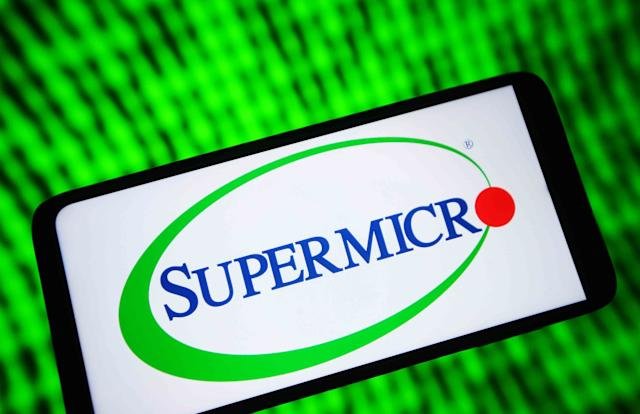

Ripple and SEC Seek to Resolve Civil Penalty Dispute with $75M Release to Ripple
In a notable shift toward final resolution, Ripple Labs and the U.S. Securities and Exchange Commission (SEC) have jointly filed a motion in the U.S. District Court for the Southern District of New York seeking to modify the judgment in their long-standing enforcement matter and release funds held in escrow. Under the proposed stipulation, $125 million in civil penalties previously imposed on Ripple would be partially redistributed—$50 million paid to the SEC, with the remaining $75 million returned to Ripple.

DOJ Charges Amalgam Founder With Crypto Fraud: A Case Study in Deception
The Justice Department has unsealed criminal charges against Jeremy Jordan-Jones, alleged founder of the now-defunct crypto venture Amalgam, accusing him of orchestrating a $1 million investor fraud built on fabricated partnerships, fictitious technology, and the trappings of blockchain legitimacy.
The indictment is the latest in a growing string of federal enforcement actions targeting fraudulent schemes masquerading as legitimate digital asset businesses. The message from prosecutors is clear: the novelty of blockchain will not shield bad actors from traditional fraud charges.

The GENIUS Act: A Long Overdue Framework for Blockchain-Era Banking
The recent Senate vote to advance the GENIUS Act—a bipartisan bill to regulate stablecoins—is more than just another milestone in crypto policy. It represents a long-overdue recognition that fiat-backed digital dollars are not speculative assets; they are infrastructure.
At Anderson P.C., we strongly support the GENIUS Act and believe it lays the foundation for a safer, more credible, and ultimately more competitive U.S. digital economy.

SEC Chair Paul Atkins Announces Sweeping Cuts and Contract Reviews: What This Means for Market Regulation and Enforcement
In his first major address to the agency, newly appointed SEC Chair Paul Atkins informed staff this week that the U.S. Securities and Exchange Commission has experienced a 15% reduction in workforce, with more changes to come. The remarks, delivered during a town hall at SEC headquarters in Washington, D.C., mark a sharp pivot in tone and direction for the Commission under the Trump administration’s broader government downsizing initiative, led in part by billionaire adviser Elon Musk’s Department of Government Efficiency (DOGE).

Super Micro Subpoenaed by DOJ and SEC Following Short Seller Allegations: What This Means for AI Market Investors and Compliance Officers
San Jose-based Super Micro Computer, a prominent supplier of high-performance AI server hardware, disclosed this week that it has received subpoenas from both the U.S. Department of Justice (DOJ) and the Securities and Exchange Commission (SEC). The subpoenas, served in late 2024, are part of an apparent response to allegations first raised by the now-defunct short seller Hindenburg Research in August of last year.

FOIA Docs Show NY AG Wanted ETH Declared a Security
In a striking revelation from documents obtained through Coinbase’s Freedom of Information Act (FOIA) efforts, the New York Attorney General’s Office asked the Securities and Exchange Commission (SEC) in 2023 to declare Ether (ETH) a security in support of its lawsuit against crypto exchange KuCoin. The request, made during the tenure of former SEC Chair Gary Gensler, was ultimately declined.

SEC Unmasks $91M Ponzi Scheme in Texas: Three DFW Residents Charged in Sweeping Fraud Case
The Securities and Exchange Commission (SEC) has filed sweeping civil charges against three Dallas-Fort Worth (DFW) residents for orchestrating an alleged $91 million Ponzi scheme that defrauded over 200 investors. The defendants—Kenneth Alexander II, Robert D. Welsh, and Caedrynn E. Conner—now face allegations of violating the antifraud and registration provisions of federal securities laws through a complex network of deceptive investment vehicles.

Civitas Resources Faces Securities Class Action After 18% Stock Drop: What Investors and Public Companies Should Know
Civitas Resources, Inc. (NYSE: CIVI), a prominent player in the U.S. oil and gas sector, now finds itself at the center of a securities class action lawsuit following a sharp 18% decline in its stock price. The complaint, filed in the U.S. District Court for the District of New Jersey (captioned Lin v. Civitas Resources, Inc., et al., No. 25-cv-03791), alleges violations of Sections 10(b) and 20(a) of the Securities Exchange Act of 1934, spotlighting misstatements concerning production capabilities and capital expenditures.

SafeMoon Trial Opens: Former CEO Claims Innocence, Points to Founder as Culprit
The trial of SafeMoon’s former CEO, Braden John Karony, commenced this week in the U.S. District Court for the Eastern District of New York (EDNY), adding another complex layer to the growing landscape of crypto enforcement actions. Facing charges of securities fraud conspiracy, wire fraud conspiracy, and money laundering conspiracy, Karony has publicly asserted his innocence—and in a rare move, attempted to deflect culpability toward SafeMoon’s founder, Kyle Nagy.

Crypto Legislation Collides with Trump’s Digital Asset Ties as House Hearing Implodes
Efforts to establish a comprehensive digital asset regulatory framework were sidelined on Tuesday, not by policy disagreement, but by political uproar.
What was expected to be a pivotal joint hearing between the House Financial Services and Agriculture Committees was instead derailed by a high-profile objection from Democratic leadership, intensifying an already volatile environment around crypto legislation.

Do I need a lawyer yet? Why early legal strategy is a startup’s secret weapon
Early legal strategy is a startup’s secret weapon. In today’s funding climate, investors are scrutinizing structure—not just story. A clean legal foundation signals you're serious, protects value, and can make or break a deal. You don’t need to over-lawyer—but you do need a smart plan.

Generative AI and the Legal Profession
Generative AI is rapidly becoming a fixture in legal practice, transforming workflows, expectations, and client demands. According to Thomson Reuters’ 2025 Generative AI in Professional Services Report, usage of generative AI among law firms and in-house legal departments has nearly doubled over the past year, with 26% now using the technology and 59% supporting its use in legal work. While the pace of adoption is striking, it has outpaced the development of formal policies, training, and clear legal frameworks for responsible implementation.

Post-Liberation Day “Secondary Tariffs”
On April 2, 2025, the Trump administration declared a new “Liberation Day”—a sweeping trade policy shift marked by aggressive new tariffs that reverberate far beyond traditional bilateral trade disputes. Under Executive Order 14245, the United States now claims the authority to impose a 25% tariff on all goods from any country that imports Venezuelan oil, whether directly or through intermediaries. This is not merely a sanctions expansion. It is a geopolitical reshaping of trade policy through discretionary economic punishment for third-party relationships—a dramatic shift from prior norms of trade enforcement.

Harvard vs. Trump: Federal Funding, Free Speech, and the Fight for Academic Autonomy
A high-stakes legal and political confrontation is unfolding between Harvard University and the Trump administration. At its core lies a dispute over federal research funding, the right of private universities to operate independently, and the administration’s efforts to combat antisemitism on campuses. The conflict raises profound questions about constitutional law, academic freedom, and the extent of executive power over institutions of higher learning.

Paul Atkins Confirmed as SEC Chair Amid Rising Pressure to Act on Chinese Companies
On April 10, 2025, the U.S. Senate confirmed Paul Atkins as the next Chair of the Securities and Exchange Commission in a narrow 52-44 vote. During his confirmation process, Atkins faced tough questions about the agency’s recent reversals in crypto enforcement and the influence of the Trump administration on its priorities. But the most pointed pressure came from lawmakers demanding stronger action against Chinese companies listed on U.S. exchanges.

Par for the Course - Senator Warren Urges Review of Trump SEC’s Crypto Retreat
To many familiar with Senator Warren’s long-standing focus on financial regulation and institutional accountability, this move is unsurprising. She has consistently taken a hardline stance against what she views as industry capture and lax enforcement. Whether this particular request leads to meaningful action from the OIG remains to be seen. Such inquiries can take months or years, and the bar for proving undue influence is high.

Markets React to Fake News on Tariffs: A Cautionary Tale for Traders
On April 8, 2025, U.S. financial markets experienced a whiplash moment after an unverified social media report falsely claimed the Trump administration was preparing a 90-day suspension of tariffs. The news—initially published by pseudonymous Twitter personality “Walter Bloomberg” and subsequently picked up by credible outlets including CNBC and Reuters—set off an immediate and massive rally in equity markets. The rally added trillions of dollars in paper value in a matter of minutes.

SEC Enforcement Lawyers Face Fallout as Crypto Industry Pushes Back
The ongoing battle between the SEC and the cryptocurrency industry has taken a new turn—not just in regulatory policy, but in the professional reputations of SEC enforcement attorneys. With the agency facing court setbacks and political shifts, some former SEC lawyers are struggling to find opportunities in private practice, particularly at firms engaged in crypto-related work. This dynamic raises fair questions on both sides—is this an unfair punishment for regulators who were doing their jobs, or is it a natural consequence of overzealous enforcement that left a lasting impact on the industry?

Big Law and the Trump Administration
The Trump administration’s latest actions targeting Paul Weiss and other major law firms have sparked debate over the future of Big Law. While these developments are significant, it’s important to take a measured view—this is disruptive but not existential for the industry.

Acting SEC Chair Reshapes the Agency Ahead of Trump’s Pick
The Securities and Exchange Commission (SEC) is undergoing a profound transformation as its acting leadership reshapes the agency ahead of the confirmation of President Trump’s nominee, Paul Atkins. These sweeping changes include staffing reductions, leadership shake-ups, and a recalibration of enforcement priorities, raising questions about the future of securities regulation in the United States.
